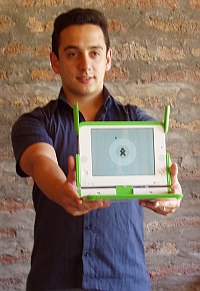Deconstructing Downtown Washington DC
Walking to work the other morning, I was struck by an amazing sight. A pinnacle of destruction piercing the downtown skyline, another office building deconstructed in the name of development.
This office building was special to me. Back when I first moved to DC, I worked at its sister building across Connecticut Avenue and the two were the only buildings around that had windows that could open. On beautiful spring days like today, I loved listening to the hustle of commuters exiting the Metro and melodies of the musicians singing for spare change.
Over a decade later, I find myself deconstructing my own downtown DC experience. No longer am I a clueless beginner accountant in a small nonprofit. No longer to I think Washington DC is the shit. Now I’ve lived on the world stage. I’ve circumnavigated the earth twice, and I’ve even been on 60 Minutes. And I’m the better for it.
Read MoreThomas Lee: A Married Man Now
Ladies, its time to mourn. The most eligible bachelor between New York City and Beijing, via Toronto, is now officially off the market. Thomas Lee is a married man, and a lucky one at that. This weekend Thomas married his long-time love, Holly Krambeck is a sweet and swank shindig at the University Club in Washington DC.
The formal wedding ceremony, where I was Best Man and kept Thomas focused on Holly versus all the other stimuli, was followed by wedding photos at DC’s Spanish Steps. But not just any wedding photos.
Thomas, being Thomas, had the photographers take hundreds of photographs of the wedding party. His family, her family, both families, groomsmen, bridesmaids, and every conceivable combination that could include each group and Tom and Holly, or as they’re now known as “Ta-Molly”.
Read MoreMay Technology Salon: Dialing for Digital Development
Mobile phones have established themselves as the communication and networking platform of choice for billions of the world’s consumers, most of whom are at the base of the global economic pyramid. Worldwide, mobile phone subscribers outnumber Internet users almost 3 to 1, with much of that gap coming from skyrocketing mobile phone use in Africa, India and China.
Yet new mobile computing platforms, such as the XO laptop from One Laptop Per Child and the Asus Eee PC promise to radically change Internet access with breakthrough portability, performance, power and price. Does “4P Computing” pose a challenge to mobile phone dominance, or does each approach blend into the other?
April Technology Salon: The Rise of 4P Computing
One year ago this week, One Laptop Per Child changed its mission, dropping its invitation for lower-cost alternatives to the XO laptop. Was that a reaction just to Intel’s Classmate PC, or amazing foresight?
Either way, a year later we are witnessing a dramatic change in the low-cost laptop marketplace. New low-cost laptops, or as I am now calling them, 4P Computing (Power, Performance, Portability, Price) are popping up daily with entrants from the practical Asus Eee PC to the seemingly comical Van Der Led.
The Rise of 4P Computing Solutions for the Developing World
Last August, I crowded a few friends into a Japanese restaurant in Silicon Valley to talk about technology in the developing world. Back then, the discussion swirled around One Laptop Per Child, as it was the most visible manifestation of our collective drive to spread appropriate information and communication technology beyond the world’s elite.
That’s because three years ago, Nicholas Negroponte stunned the technology industry and the development community with an amazing idea: One Laptop Per Child – a rugged yet low-cost computing device, the XO laptop, can empower primary education in the developing world.
His idea that low-power, appropriate performance, highly portable, and low-priced computers were not only possible, but could also radically change education in the developing world and computer manufacturing in the developed world was an instant hit with Presidents of the Global South.
While the global telecommunications industry was quick to dismiss his idea as folly, as I told the Economist in its article “The rise of the low-cost laptop“, they did not laugh long:



